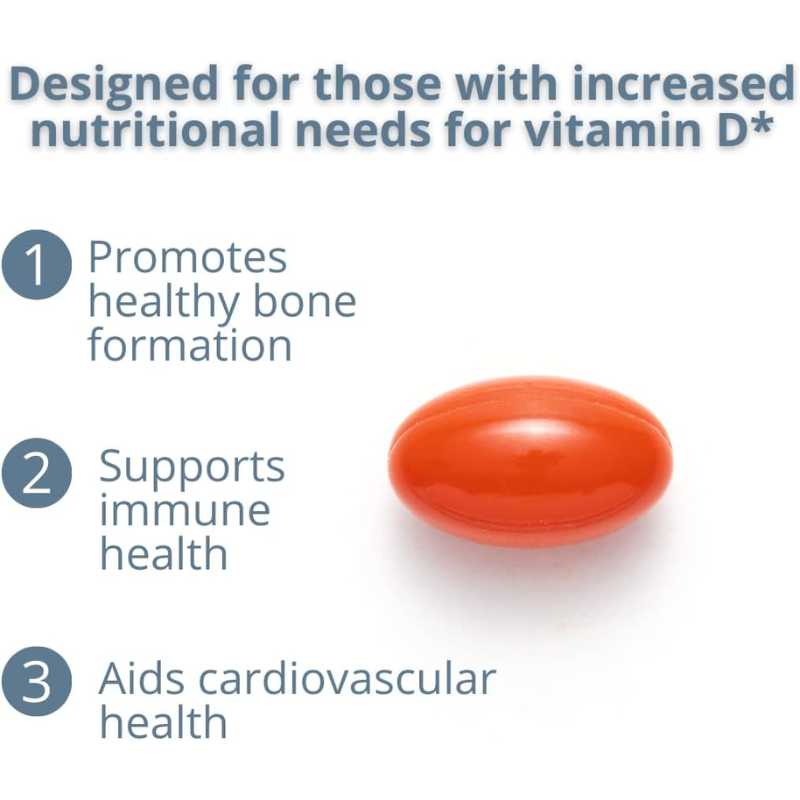Imagine discovering a magic potion that boosts your immune system, strengthens your bones, and improves your overall well-being. The “Understanding the Top Benefits of Vitamin D” is just that potion! This comprehensive guide will teach you about the ten significant benefits of this remarkable vitamin and provide practical steps to harness its power for your health. This is your chance to unlock a healthier, happier life with Vitamin D.
Overview of Vitamin D
Understanding what vitamin D is
Vitamin D, often called the “Sunshine Vitamin,” is a group of fat-soluble compounds vital for overall health. Its primary function is to help the body absorb calcium and phosphate from food, which helps keep your bones and teeth healthy. Besides these, vitamin D also significantly affects immune system function and can impact heart health and mood stabilization.
Sources of Vitamin D: Foods and Sunlight
You can access vitamin D in two primary ways – through food and sunlight. When exposed to sunlight, your skin creates vitamin D. This is why it is commonly referred to as the “Sunshine Vitamin.” Foods that provide vitamin D include fatty fish like salmon, mackerel, sardines, red meat, liver, and egg yolks, and fortified foods like breakfast cereals and milk products.
How the Body Absorbs and Uses Vitamin D
Your body absorbs Vitamin D when your skin is exposed to sunlight or through the foods you eat. This vitamin then undergoes two conversions in the body, first in the liver and then in the kidney, which enables the body to use it. Once converted, it assists in many bodily functions, including maintaining healthy bones by controlling calcium and phosphate levels in the body.

Vitamin D and Bone Health
Role of Vitamin D in Calcium Absorption
Vitamin D is instrumental in supporting our bones by aiding in calcium absorption. It ensures the intestines can effectively absorb calcium, which is then used to form and maintain healthy bones and teeth. Without sufficient vitamin D, the body would struggle to process calcium effectively, weakening bones.
Vitamin D and Prevention of Osteoporosis
Research has shown a strong correlation between sufficient Vitamin D levels and the prevention of osteoporosis, a condition that weakens bones and makes them more prone to fractures. By promoting calcium absorption, vitamin D helps maintain bone density and strength, thus reducing the risk of osteoporosis.
Vitamin D Deficiency and Rickets in Children
In children, severe vitamin D deficiency can lead to rickets, a disease that causes soft, weak bones. This condition develops when there isn’t enough vitamin D to maintain appropriate calcium and phosphate levels, preventing bones from mineralizing or hardening as they should.
The Link Between Vitamin D and Dental Health
Like its role in bone health, vitamin D also plays a significant role in dental health. It aids in calcium absorption, which is essential for tooth formation, and helps to keep gums healthy. A deficiency of vitamin D may lead to tooth decay and gum disease.

Vitamin D and Immune System Strength
How Vitamin D Boosts Immune Function
Beyond bone health, vitamin D is a crucial player in your immune system. It enhances the pathogen-fighting effects of monocytes and macrophages — white blood cells that are important parts of your immune defense — and decreases inflammation, promoting overall immune health.
Vitamin D and Auto-Immune Diseases
Research has suggested a link between vitamin D and its role in preventing auto-immune diseases. These are conditions where the immune system mistakenly attacks normal cells as if they were foreign invaders. Vitamin D modulates the immune response, reducing the risk of these diseases.
The Role of Vitamin D in Preventing Common Colds and Flu
Vitamin D is vital in enhancing the immune system’s ability to protect against common illnesses like the cold and flu. Some research suggests that maintaining adequate levels of vitamin D can help reduce the risk of these diseases, especially during the colder months when sunlight is limited.

Vitamin D and Cardiovascular Health
Vitamin D and Blood Pressure Regulation
Vitamin D’s role isn’t limited to bone and immune health. It also impacts heart health, specifically in regulating blood pressure. Vitamin D deficiency has been linked to an increased risk of high blood pressure, which can lead to various cardiovascular problems.
The Impact of Vitamin D on Heart Disease Risks
Adequate vitamin D levels have been linked with a lower risk of heart disease. Vitamin D plays a crucial role in heart health by reducing inflammation and controlling blood pressure, both key factors in cardiovascular health. Conversely, a deficiency in Vitamin D has been linked with an increased risk of heart disease.
How Vitamin D deficiency affects Heart Health
Vitamin D deficiency does not directly cause heart disease but can increase the risk. Low vitamin D levels have been associated with an increased prevalence of heart attacks, strokes, and congestive heart failure. As such, maintaining optimal Vitamin D levels is crucial for heart health.

Vitamin D and Mental Health
Understanding the Relationship Between Vitamin D and Mood
Vitamin D could also play a role in mood regulation and ward off depression. Researchers believe this is due to vitamin D receptors in the brain that can impact hormones known to affect moods, such as serotonin and dopamine.
Vitamin D and its Role in Preventing Depression
Studies have shown that people with depression often have lower vitamin D levels, suggesting a possible role in preventing or treating this condition. Although more research is needed, some evidence suggests that supplementing with vitamin D may improve symptoms in people with clinical depression.
How Vitamin D Affects Cognitive Function
Research suggests that there might be a correlation between low vitamin D levels and impaired cognitive function. Evidence points to a potential role of vitamin D in protecting neurocognitive health and function. Therefore, maintaining adequate vitamin D levels could preserve cognitive function and prevent cognitive decline.

Vitamin D and Cancer Prevention
Overview of Research on Vitamin D and Cancer
In recent years, increased attention has been given to the potential role of vitamin D in preventing cancer. This is due to a growing body of evidence suggesting that vitamin D might protect against developing some types of cancer, including breast, prostate, and colon cancer.
How Vitamin D Works to Prevent Certain Types of Cancer
While research is ongoing, it is believed that vitamin D can inhibit cancer development and growth by reducing cell proliferation, inducing cell differentiation, and inhibiting angiogenesis (formation of new blood vessels that nourish cancer cells).
Exploring the Link Between Vitamin D Deficiency and Increased Cancer Risk
Vitamin D deficiency has been correlated with an increased risk of certain types of cancer. This indicates that maintaining adequate Vitamin D levels may play a role in cancer prevention, although more research is needed to confirm this relationship and understand the mechanisms involved fully.

Vitamin D and Diabetes Control
The Role of Vitamin D in Insulin Production
Vitamin D also plays a crucial role in the body’s insulin production. It’s believed to have direct effects on the cells in the pancreas that are responsible for making insulin, a hormone that helps regulate blood sugar levels.
How Vitamin D Can Help in Diabetes Management
Maintaining sufficient vitamin D levels has been seen to help in diabetes management by improving insulin sensitivity and reducing inflammation, both key factors in managing this condition.
The Link Between Vitamin D Deficiency and Increased Risk of Diabetes
Research suggests that inadequate vitamin D levels might be associated with an increased risk of developing type 2 diabetes. This has led some experts to propose that vitamin D might be a modifiable risk factor for diabetes that can be addressed as part of a prevention strategy.

Vitamin D for Pregnant Women and Infants
The Importance of Vitamin D During Pregnancy
Vitamin D is essential during pregnancy, as it promotes bone development and the baby’s healthy growth. It also plays a role in supporting the mother’s immune system. Insufficient vitamin D levels during pregnancy can lead to complications such as gestational diabetes and preterm birth.
How Vitamin D Affects Fetal Development
The presence of adequate vitamin D during pregnancy is essential for the healthy development of the fetus, particularly in the development of the skeletal system. Vitamin D supports the absorption of calcium, which directly benefits the formation and strengthening of the baby’s bones and teeth.
Vitamin D and Breastfeeding
It’s recommended that breastfed infants receive a vitamin D supplement. This is because while breast milk is the optimal source of nutrients for an infant, it doesn’t contain sufficient amounts of vitamin D. A daily supplement can help ensure that your baby receives these necessary nutrients for healthy bone development.

Recommendations for Vitamin D Intake
Daily Recommended Intake of Vitamin D
The recommended daily vitamin D intake varies according to age, lifestyle, and individual health. Generally, for most adults aged 19–70, the recommended daily intake is 600 international units (IU) of vitamin D per day, expanding to 800 IU for those over the age of 70.
Vitamin D Intake for Different Age Groups
Infants 0-12 months require 400 IU daily, children 1-18 years require 600 IU, adults up to 70 also require 600 IU, and adults over 70 should increase to 800 IU daily. Pregnant and breastfeeding women should aim for 600 IU daily.
Vitamin D Intake for People with Certain Health Conditions
People with certain health conditions such as osteoporosis, Crohn’s disease, and celiac disease may have difficulties absorbing Vitamin D and may thus require higher doses. It’s always best to consult your healthcare provider for personalized advice on vitamin D intake.
Negative Effects of Vitamin D Deficiency
Symptoms of Vitamin D Deficiency
Vitamin D deficiency may not always show symptoms, making it hard to recognize. However, when symptoms do occur, they might include fatigue, frequent illness, bone and back pain, depression, hair loss, and muscle pain.
Health Risks Associated with Long-term Vitamin D Deficiency
Long-term deficiency of vitamin D can have significant health implications. Apart from bone disorders like osteoporosis and rickets, it can also increase the risk of cardiovascular disease, cognitive impairments, asthma in children, and even cancer.
How to Overcome Vitamin D Deficiency Through Diet and Supplements
The best way to overcome vitamin D deficiency includes getting adequate sunlight, consuming foods rich in vitamin D, like fatty fish, dairy products, and eggs, and potentially taking dietary supplements as your healthcare provider recommends. Regular testing can also be beneficial in ensuring you prepare and maintain adequate Vitamin D levels.





